2023 NFL Draft prospect rankings: Running backs
theScore's prospect rankings series takes a position-by-position look at the top players available in the 2023 NFL Draft.
Top 50
QB | RB | WR | TE | OL
EDGE | DL | LB | CB | S
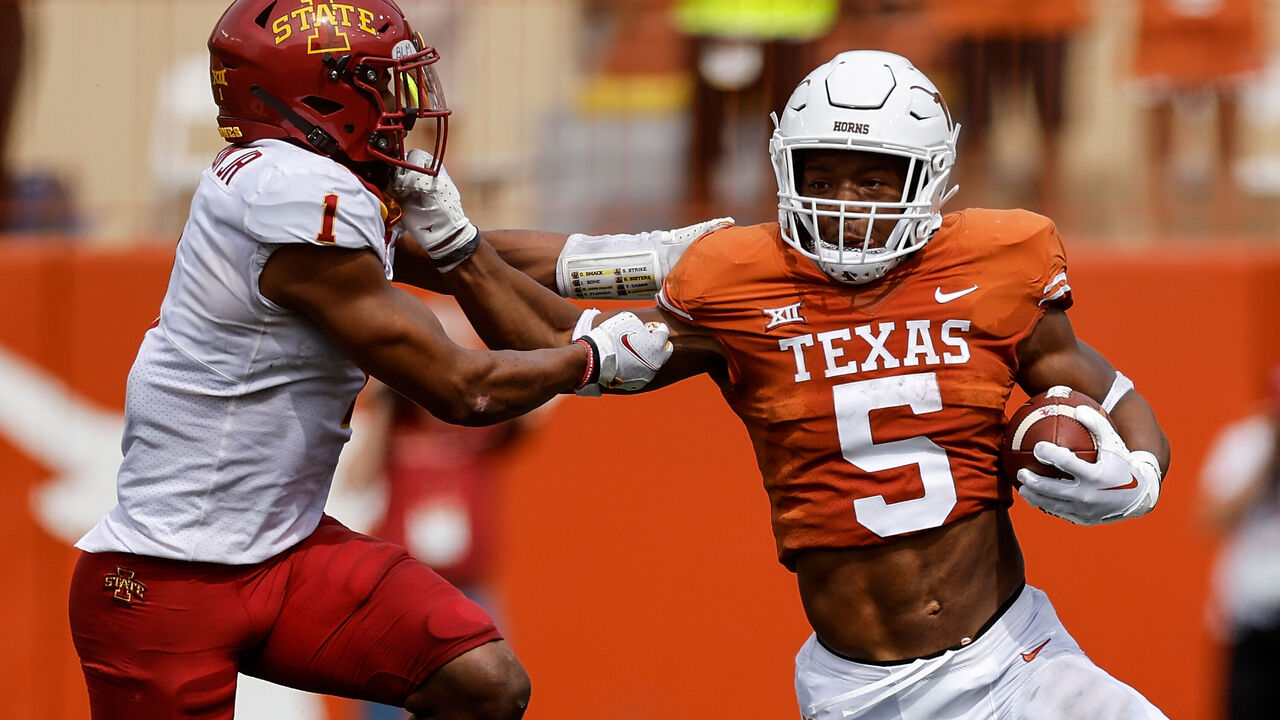
Robinson can do it all. The Texas star is an impressive athlete who runs with good vision and tempo. He's able to make defenders miss with burst out of his cuts and demonstrates excellent balance working through contact. His running ability alone would be enough to make Robinson a first-round prospect at the position, but that's not all he can do; he's also a high-level receiver out of the backfield, showing great hands as a pass-catcher and an extensive route tree. There will always be people in today's game who hate the idea of drafting a running back early, but it's tough to argue against such a move when talking about a player like this. Robinson is among the best players in this draft, and he'll have a chance to emerge among the elite players at his position from the outset of his NFL career.
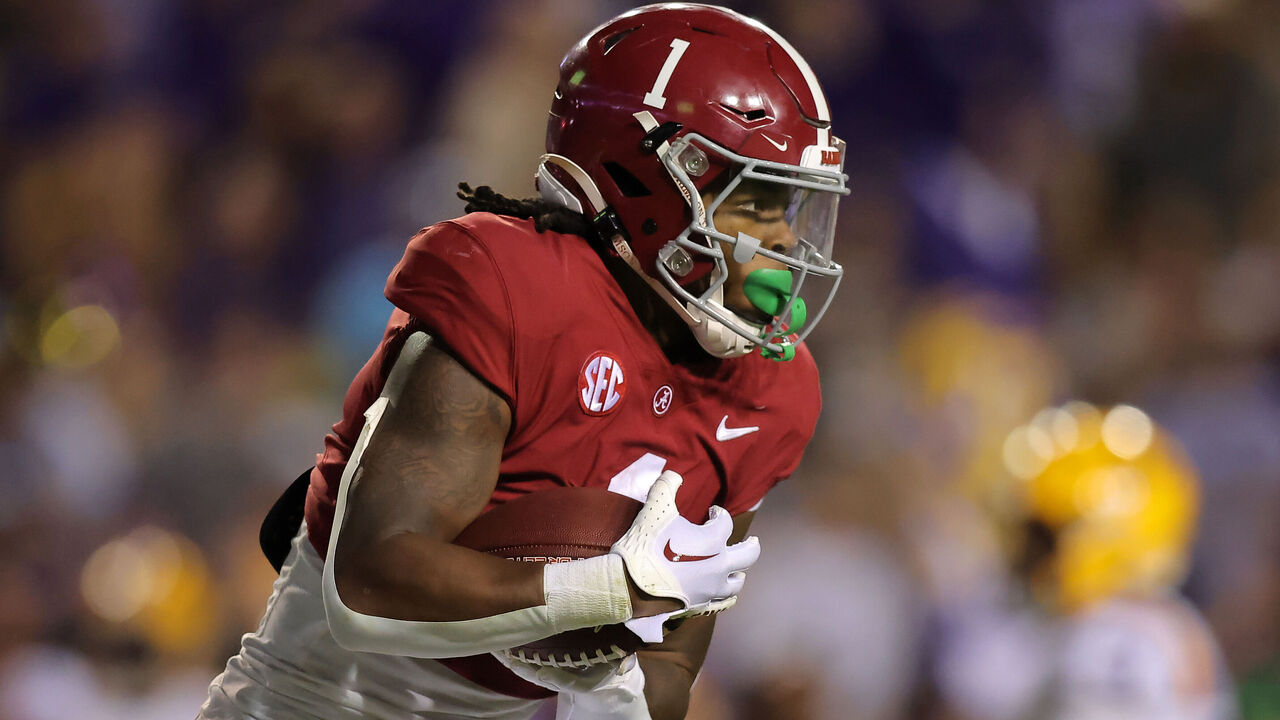
Gibbs is built for today's NFL. While his size may not make him the greatest fit for old-school teams looking to get under center and pound the ball between the tackles, he's a matchup nightmare in an offense more inclined to spread things out. The Alabama standout has big-play potential in the run game, showcasing the elusiveness to slip by defenders and the speed to take any play the distance. That game-breaking ability can also be put to use in the passing game, as he's proven adept as a high-volume receiver out of the backfield - his 44 receptions in 2022 was tops among all Alabama players. Pair Gibbs with a big-bodied back who can handle short yardage and let him stay fresh to dominate everywhere else.
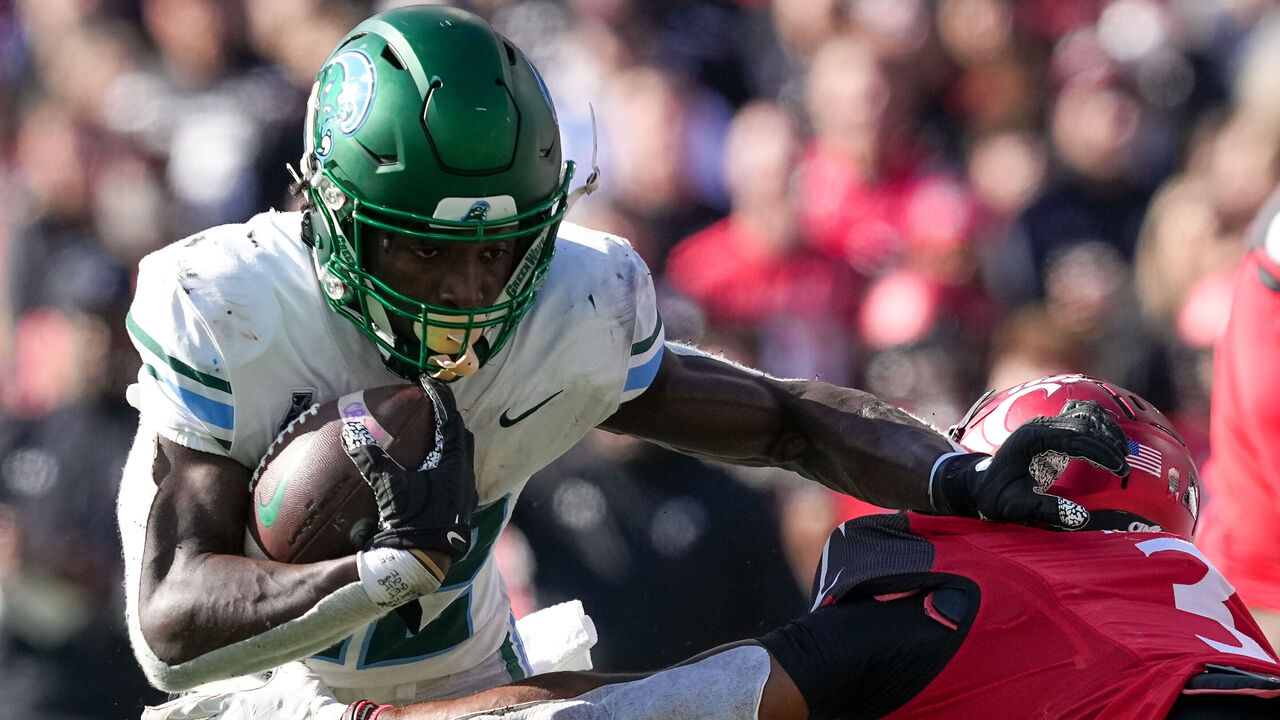
Spears should be getting a whole lot more attention than he has been during the pre-draft process. While teams may hesitate to give him a feature workload on account of his slender frame, there's still plenty of opportunity for him to make an impact as a 1A option in a two-man backfield. Spears has an exhilarating combination of explosiveness and lateral agility, and an innate feel for setting up defenders both behind his blocks and in the open field. His ability to create extra yards for himself, turning small gains into big ones, is going to make him an impact playmaker from Day 1. He's also flashed significant upside as a pass-catcher out of the backfield when given the opportunity - this should be an area of his game that is unlocked at the next level. Spears is an exciting prospect who could end up being one of the best running backs in this class.
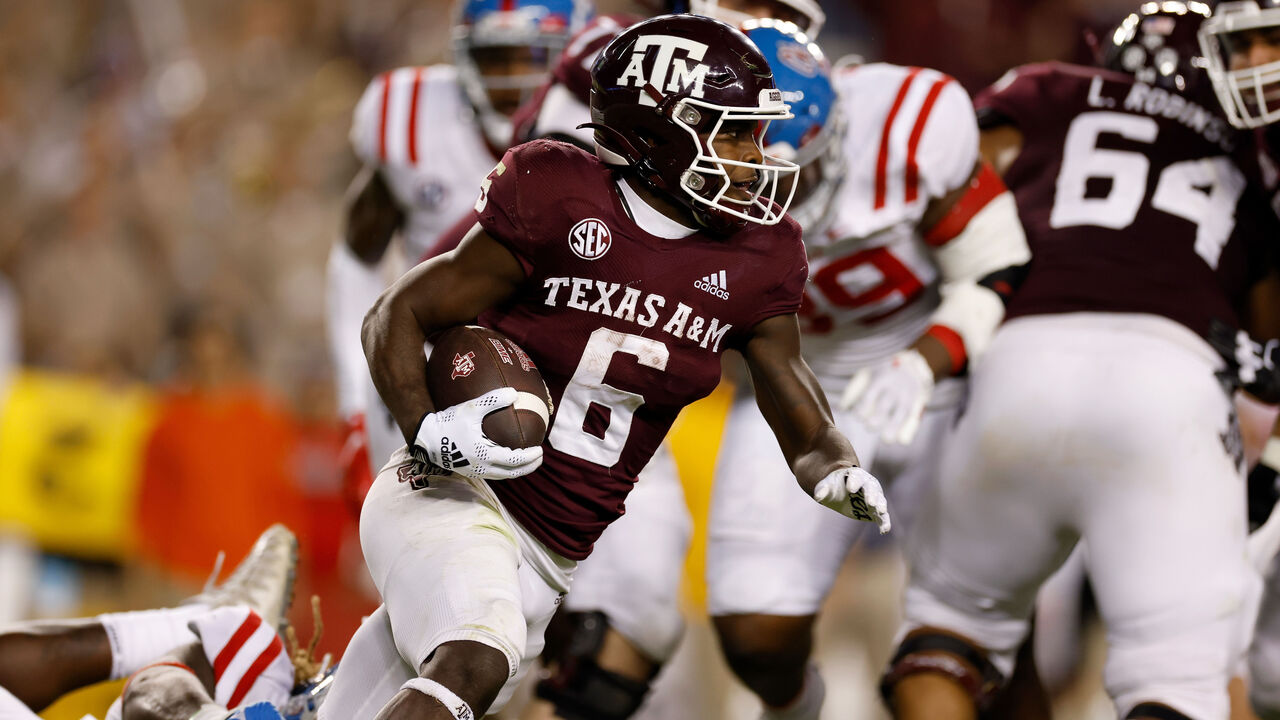
Achane is a big-play machine. Long regarded as one of the fastest players in the nation, the Texas A&M star confirmed the hype at the combine with a 4.32 40-yard dash. He's not just a straight-line burner, though. Achane also demonstrates impressive vision as a runner, and the elusiveness to make defenders miss and find extra yards beyond what's blocked for him. His significant lack of size will limit the amount of carries he can handle between the tackles, and it'll likely make him a nonfactor in pass protection, too. So, there is risk here. But modern offenses are creative enough to find other ways to get the ball in the hands of elite playmakers like Achane. His skillset will be an X-factor in the right system, and he could also provide substantial value as a return man on special teams.
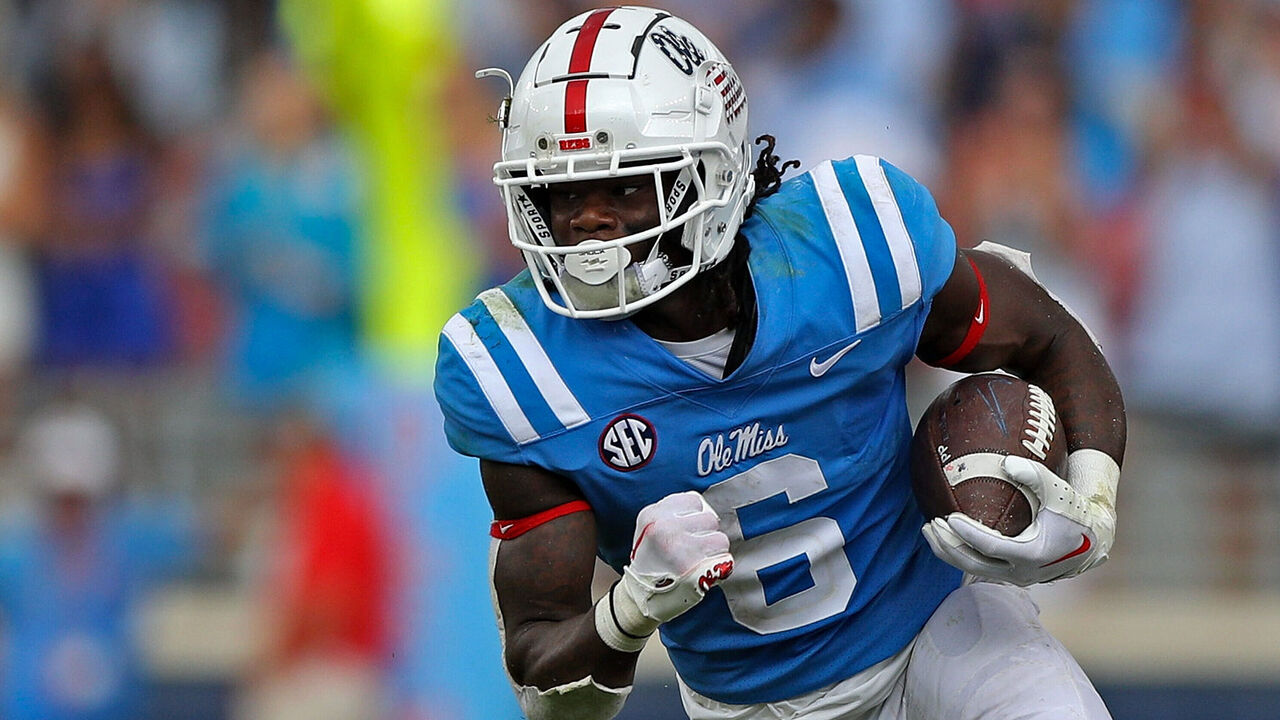
Don't let the limited college production fool you - Evans could be a baller in the NFL. The TCU transfer finally got an opportunity to shine after joining Ole Miss in 2022, and was quickly able to establish himself as one of the class' most interesting running backs. Evans is best suited in a zone system that allows him to make one cut and get upfield. He shows good vision to set up blocks, the burst to hit his run lanes, and the balance to work through contact. Evans is also a highly competitive player who will look to finish runs far more often than one might expect for a back his size. He also brings that physicality in pass protection, giving him immediate three-down upside, even if there is some development required of him as a receiver.
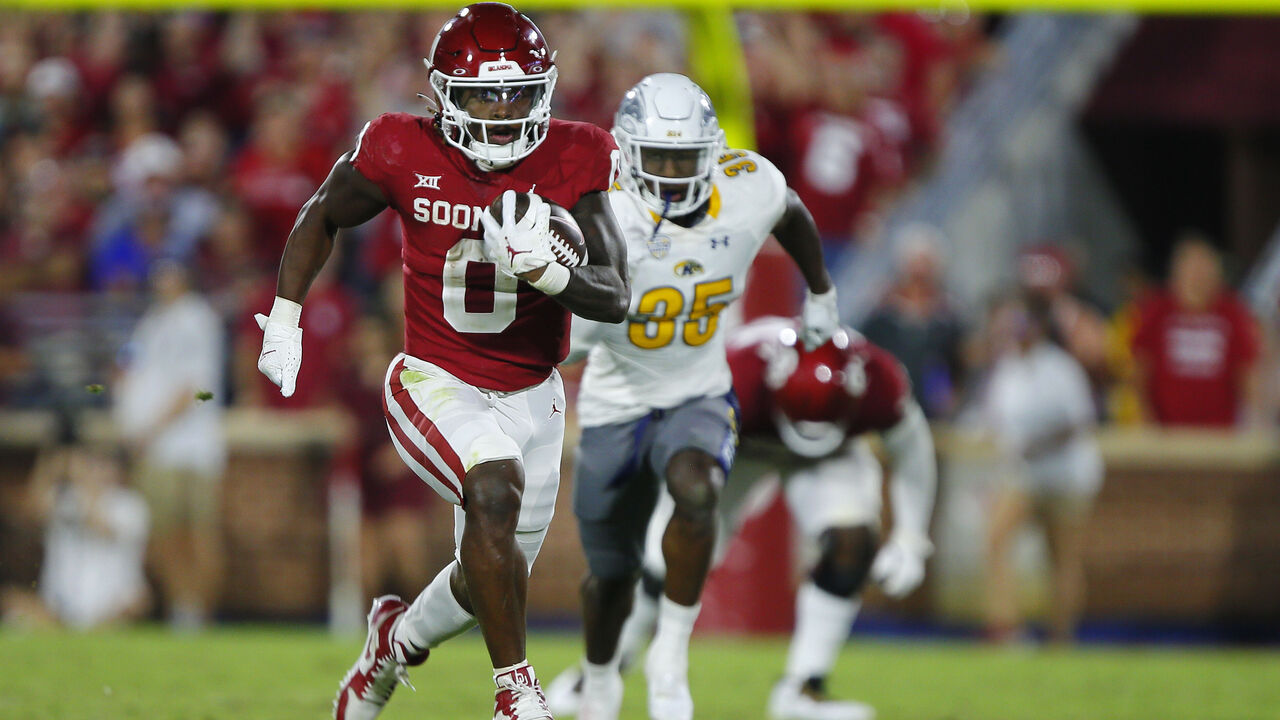
Gray is one of several running backs in this class fighting the undersized label. A small frame indeed limits the physicality he can bring inside the tackles, but there's so much else to like about his game in that regard - the Oklahoma standout is highly intelligent with a sublime feel for running inside. He utilizes vision and tempo to set up his blocks and has the stop-start burst to elude defenders and regularly create additional yards for himself. Gray is also a plus contributor on third down, capable of making plays as a receiver out of the backfield or staying in for pass protection. A lack of breakaway speed caps his upside in terms of big-play ability, but he should be a steady every-down player early in his pro career.
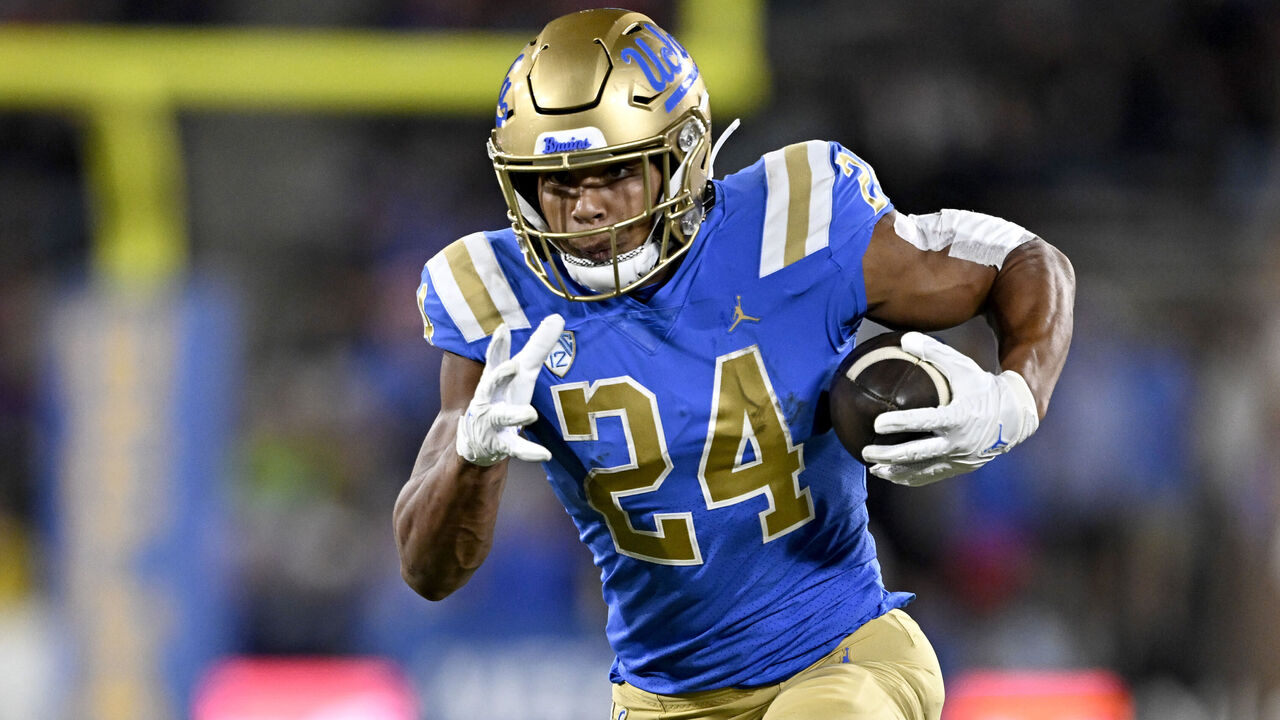
Charbonnet is something of a rare breed in this class: a back who wins with physicality. The UCLA standout plays with a level of power and balance that allows him to effortlessly shake contact and continue downhill. Running with a lower pad level would help him maximize that play style at the NFL level, but his knack for bouncing off contact should translate either way. Charbonnet is also a unique prospect in that he combines a physical running style with a well-rounded three-down skill set - he'll fit right in both as a receiver out of the backfield, running a variety of routes, and in pass protection. That skill set does well to compensate for anything he may lack in athletic upside.
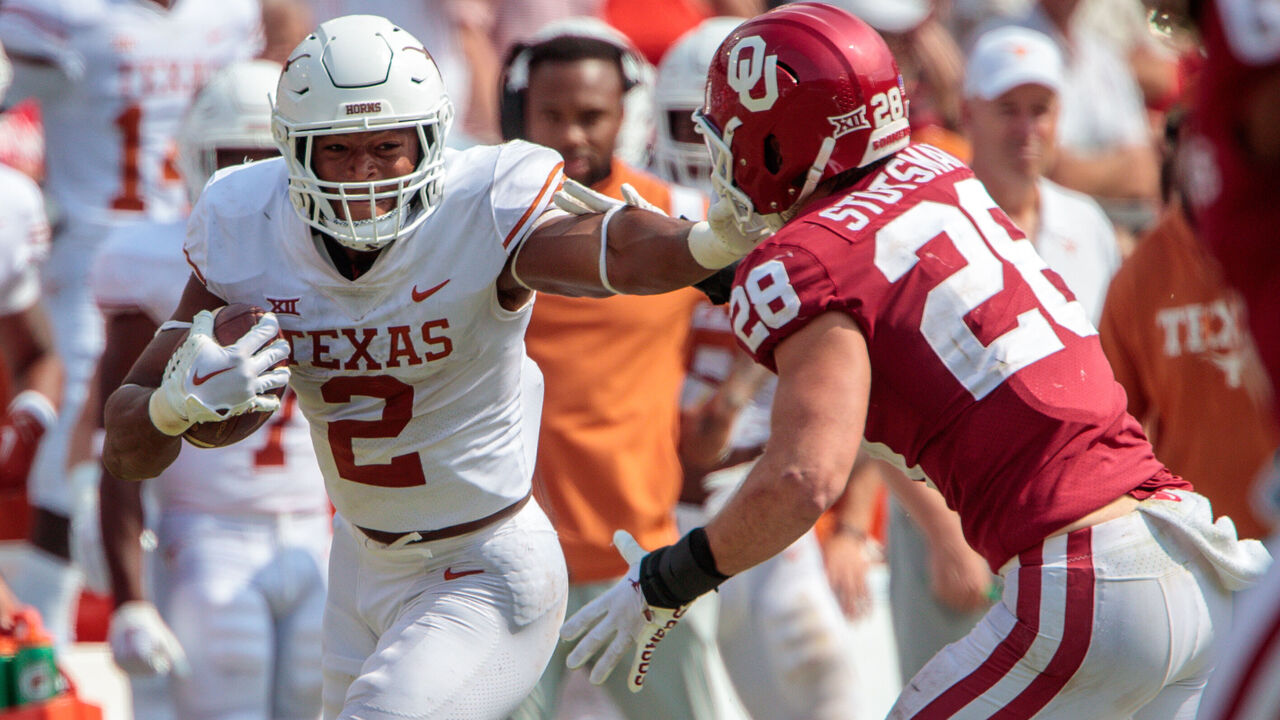
Johnson was stuck behind Bijan Robinson for much of his Texas career, but not being able to supplant a generational prospect is hardly a knock on his game. In fact, teams will consider it a positive that a player with his running style is making the jump to the NFL without much wear and tear. Johnson profiles as a physical between-the-tackles runner who can create yards for himself by powering through contact. He isn't particularly elusive, but is shiftier than you'd expect given his size and running style. He also has an every-down skill set that will allow him to stay on the field both as a pass-protector and a receiver. Johnson should be another college committee back who goes on to have a much more productive pro career.
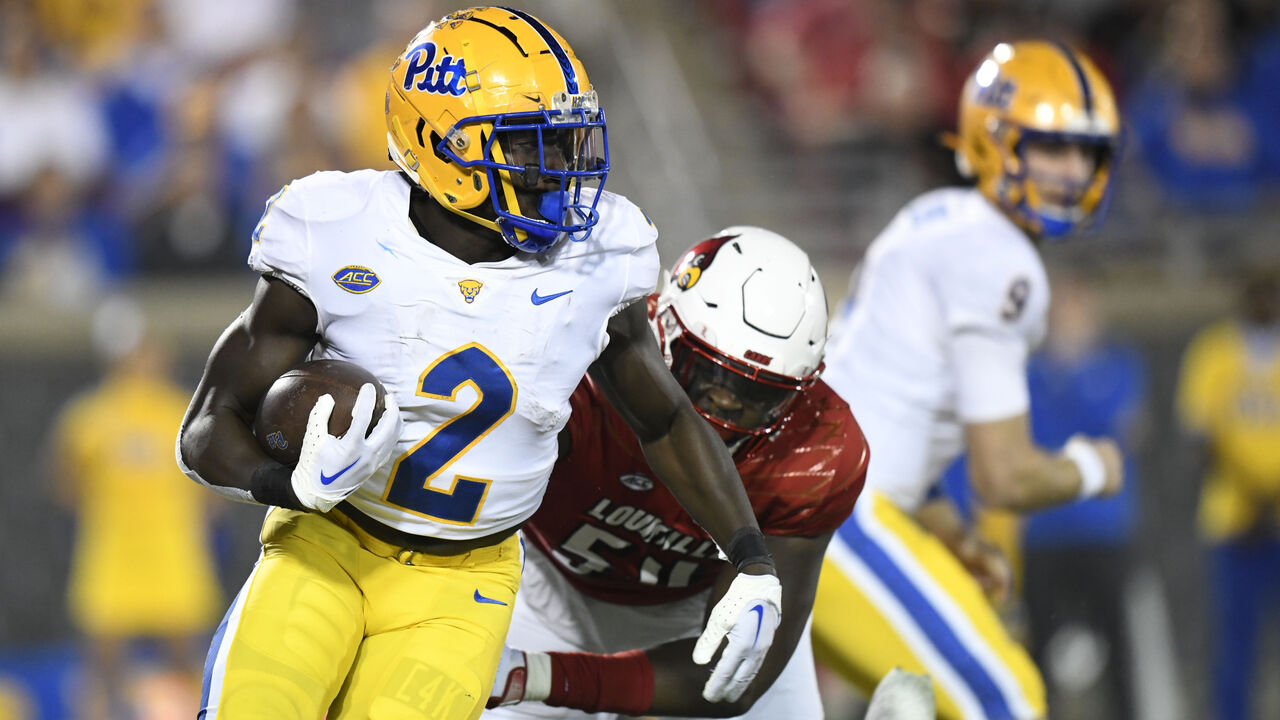
Abanikanda is an intriguing upside play. The rare running back with both size and impressive long speed, it's easy to see why teams may fall in love with his pro potential. Abanikanda demonstrates good vision to set up his blocks, burst to hit the lane with conviction, and the balance to either bounce or spin off contact to keep a play alive. You'd like to see a little more physicality from a player with his frame, especially since he doesn't offer much in terms of lateral agility. But when he hits daylight, he's gone. Abanikanda could have a major impact as an early-down runner.
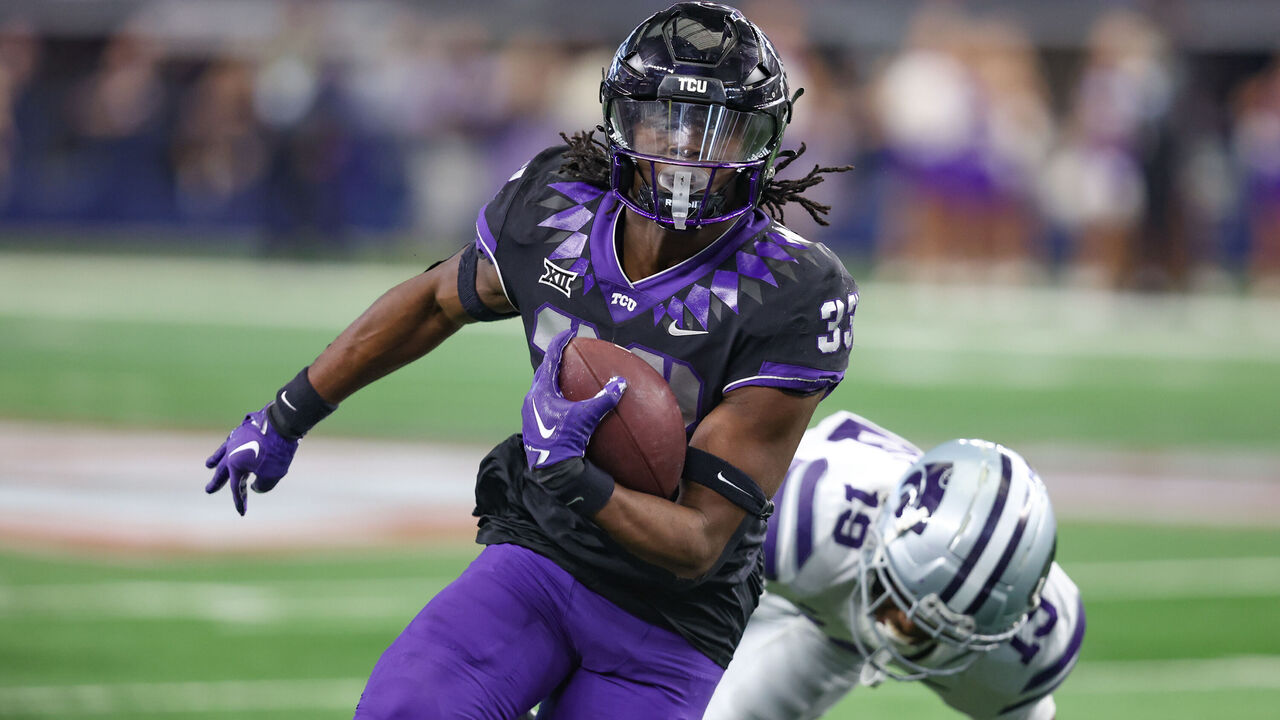
Miller's an intelligent runner. He demonstrates excellent vision as the play develops, runs with good tempo, and flashes the contact balance to shake off defenders. And although he never ran a 40-yard dash during the pre-draft process, he appears to have more than enough speed for his size. Miller isn't the most elusive ball-carrier, so his physicality will be important for creating extra yards at the next level. More consistently dropping his pads into contact is going to be the key to his game translating in that area. Miller profiles as a starting-caliber, early-down runner in any scheme.
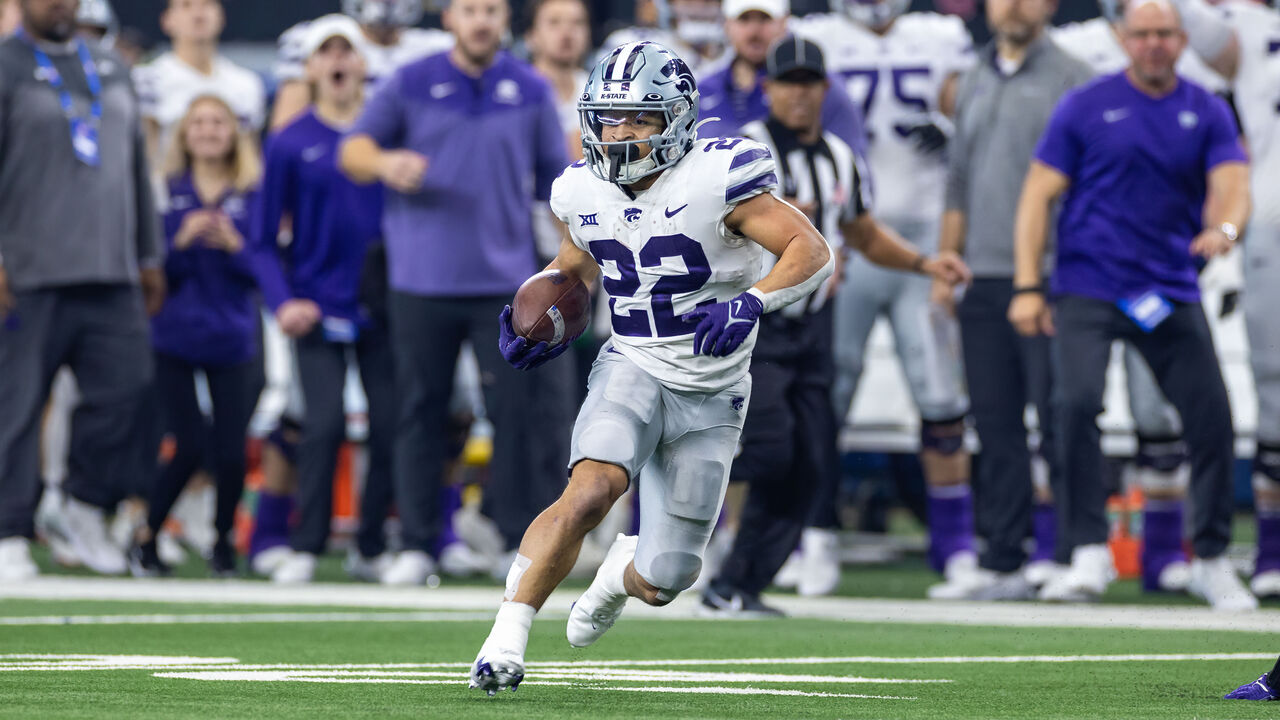
Vaughn won't be a consideration for many teams because of his size, and those concerns are justifiable. At only 5-foot-5 and 179 pounds, he'll be an all-time outlier at the position in the NFL. But it's hard to not fall in love with everything he does as a football player. The Kansas State standout is an intelligent runner who can play hide-and-seek behind offensive linemen nearly twice his size, expertly setting up his blocks to execute between the tackles. His balance and low center of gravity help him bounce off soft contact, and he's got the elusiveness to make defenders miss in tight areas. Vaughn is also a polished receiver out of the backfield, rounding out a relatively complete skill set. He'd be one of the class' top running backs if he checked in a few inches taller and 25 pounds heavier. There's still a reasonable chance he has a productive, Darren Sproles-like career, but the risk hurts his value.
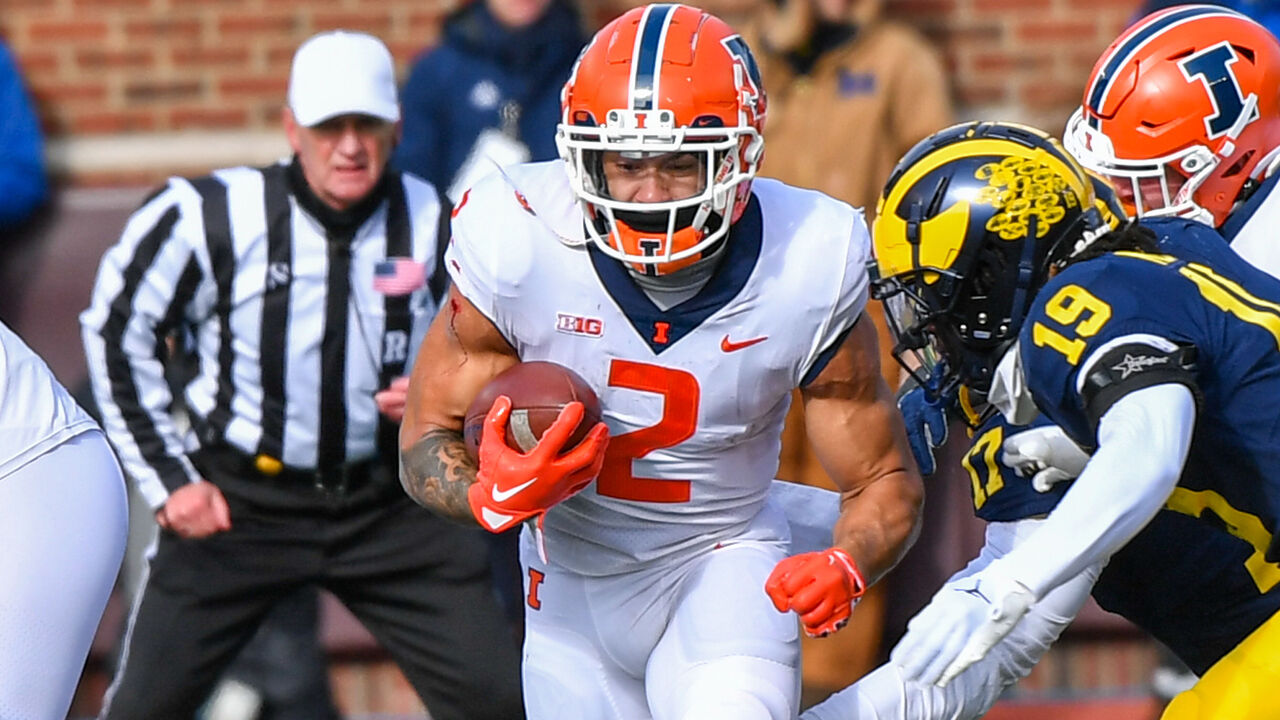
Brown produced with a massive workload as a senior in 2022, taking 328 carries for 1,643 yards in 12 games. The Illinois standout is an explosive runner - as confirmed with an outstanding athletic profile in pre-draft testing - who demonstrates the ability to make good reads as a play develops. He's comfortable in tight spaces and can create yards for himself by setting up defenders behind his blocks and beating them with lateral quickness. Brown is also an effective receiver out of the backfield and a capable pass-protector. That skill set will make him a strong fit for today's NFL, particularly as part of an offense that makes an effort to spread things out. He may not have the physicality for significant early-down work, as playing through contact isn't a strength in his game right now, so it's possible he settles into a scatback role as a result.
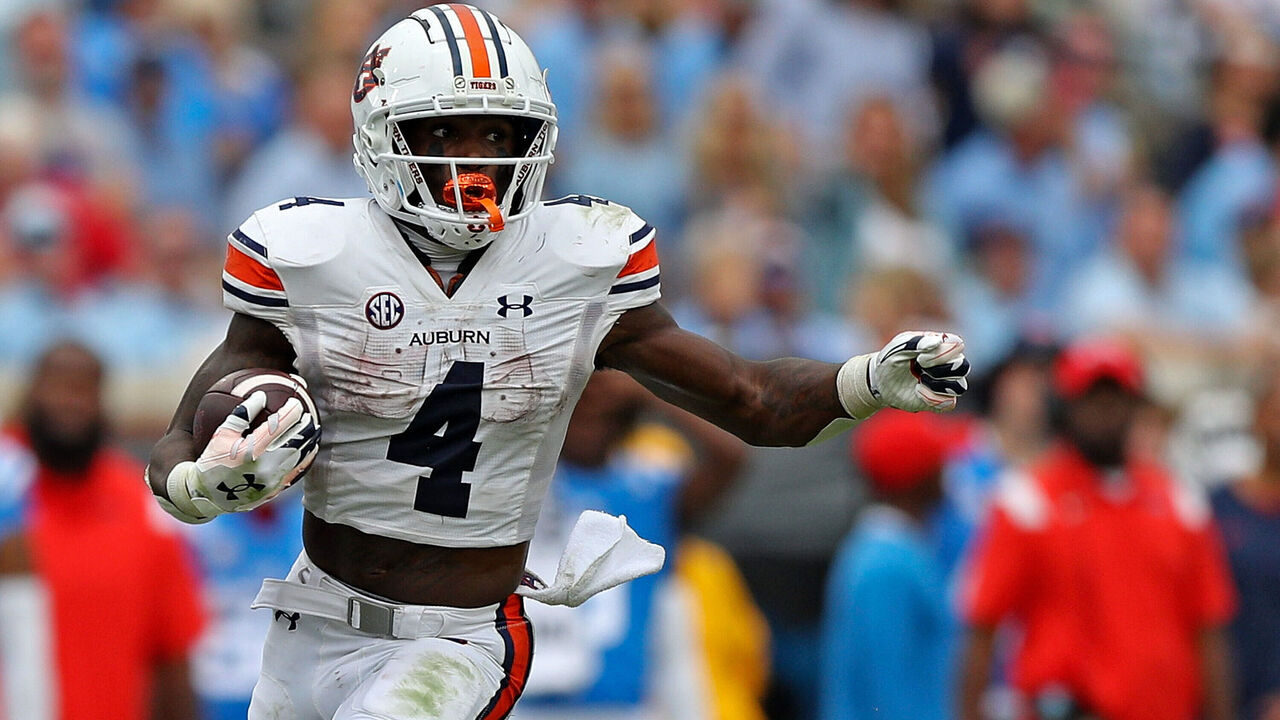
Bigsby has the talent to contribute as an early-down runner from the outset of his pro career. The Auburn product does well to process what's in front of him and runs with an intriguing blend of physicality and better lateral quickness than you might expect. It's unclear whether he'll ever develop into a reliable option on obvious passing downs, but Bigsby's skill set is an easy translation for a volume role between the tackles. He could be a reliable ball-carrier in any scheme, given the opportunity for regular touches.
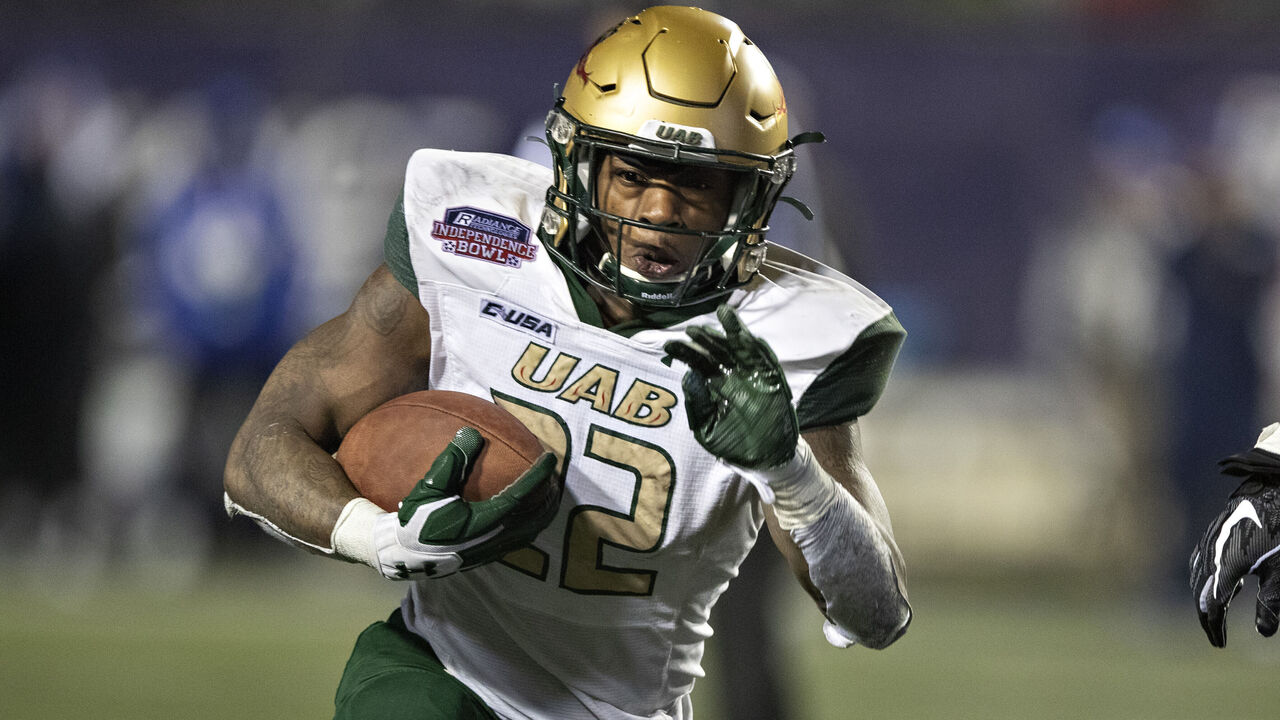
McBride was unstoppable at UAB. One of the most productive backs in the country, he capped his three-year college career with 1,713 yards and 19 touchdowns on a ridiculous 7.4 yards per carry. He didn't face the stiffest competition, which will have to be a consideration for NFL teams, but McBride is a smart runner who finds extra yards with contact balance and lateral agility. He's yet to show anything as a receiver, so third-down value would be a complete projection. And a lack of long speed certainly limits his big-play ability. But McBride can carve out a role for himself as an early-down runner in a zone-blocking scheme if he can clean up his fumble issues.
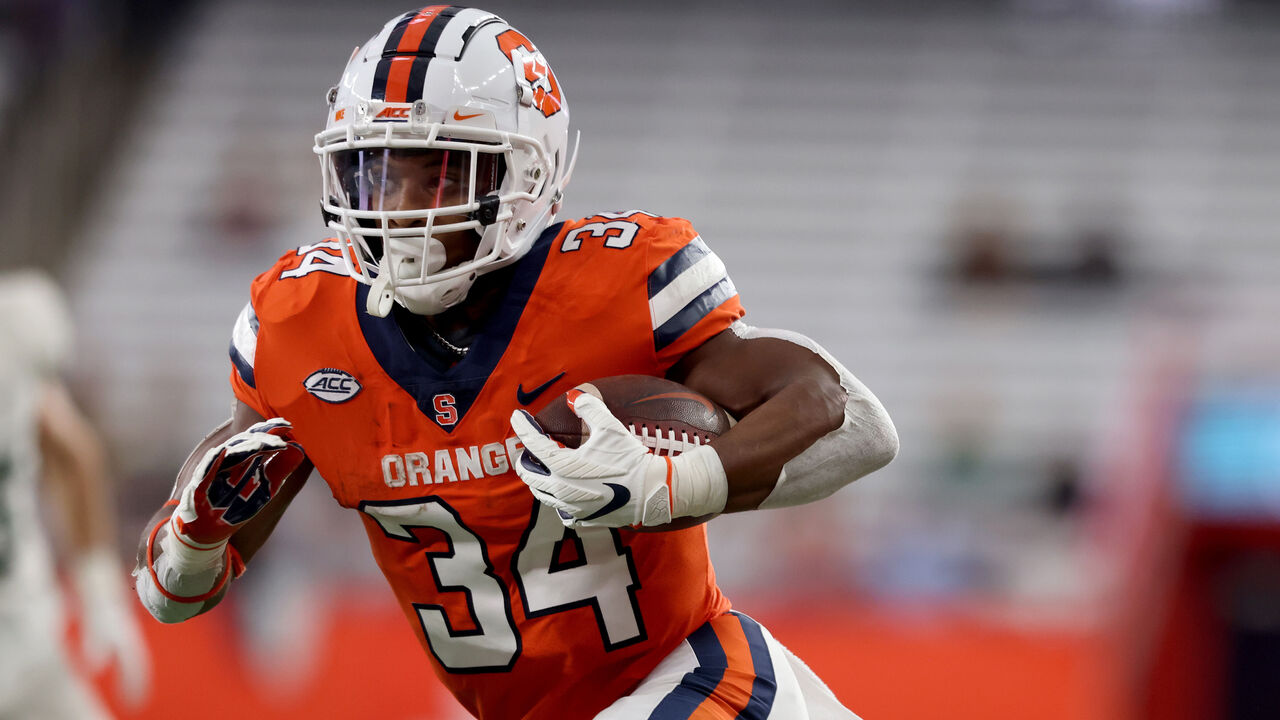
Tucker's natural gifts give him an intriguing NFL ceiling. He's a well-built back who has the size and play style to handle a significant workload between the tackles, and his combination of speed and strength through contact gives him several ways to maximize touches. Reaching his potential will require more patience as a runner and less reliance on bouncing runs to the outside - that's simply not a formula for success at the next level. Tucker could significantly outperform his draft position with some development.
Other notable prospects
Keaton Mitchell, East Carolina
Kenny McIntosh, Georgia
Mohamed Ibrahim, Minnesota
Tiyon Evans, Louisville
Travis Dye, USC
HEADLINES
- Frozen Four or Stanley Cup Playoffs, stage not too big for 19-year-old Buium
- Stars' Blackwell rises to occasion with OT winner in Game 2
- Kawhi's 39 points lead Clippers to win over Nuggets, even series
- Ovechkin shrugs off 1st playoff OT winner: 'A goal is a goal'
- Pistons beat Knicks, snap 15-game playoff skid dating back to 2008